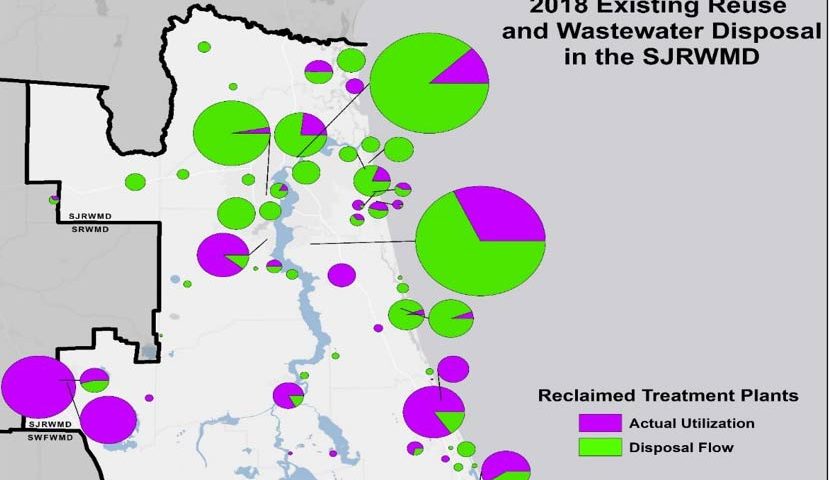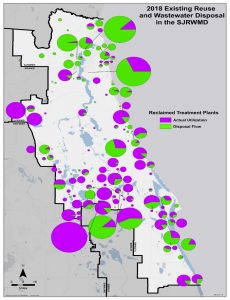Governing Board proclaims May 17–23 as Florida Water Reuse Week


This figure shows 2018 reclaimed water use by facility in the St. Johns River Water Management District.
PALATKA, Fla., May 12, 2020 — To promote and encourage efficient use of reclaimed water, the St. Johns River Water Management District’s Governing Board on Tuesday approved a resolution proclaiming May 17–23 as Florida Water Reuse Week.
“Florida is a national leader in water reuse, with 476 facilities together producing 1.6 billion gallons per day of reclaimed water flow,” said St. Johns River Water Management District Executive Director Dr. Ann Shortelle. “Through our cooperative cost-share programs, we have contributed more than $72 million over the past 16 years to reclaimed water projects to offset groundwater demands and protect Florida’s water supply for the future. Thanks to these partnership projects, we are making available 217.5 million gallons of beneficial reuse per day.”
Since 1995, beneficial reuse in the district has grown by 167%. Future reuse within the district is projected to increase by an additional 89 million gallons per day (mgd).
Water reuse is the process of using highly treated wastewater for beneficial purposes. Currently, there are 140 reuse systems in the district that use more than 218 mgd of reclaimed water for beneficial purposes such as golf course and landscape irrigation, groundwater recharge and industrial uses, which offsets an equivalent volume of groundwater.
Since Florida utilities began using reclaimed water in the 1970s, it has become a major component of water resource management by local governments and utilities within the state of Florida and the district.
Since 2007, the state of Florida, the Department of Environmental Protection, water management districts, water utilities, local governments and water-related organizations have declared the third week in May as Florida Water Reuse Week to promote and encourage efficient use of reclaimed water.
The district actively promotes and encourages efficient and effective use of reclaimed water by:
- Implementing a cooperative funding program that provides financial assistance to entities developing alternative water supplies, including water reuse;
- Funding studies and pilot programs that promote innovative treatment technologies; and
- Engaging in innovative uses and applications of reclaimed water.

